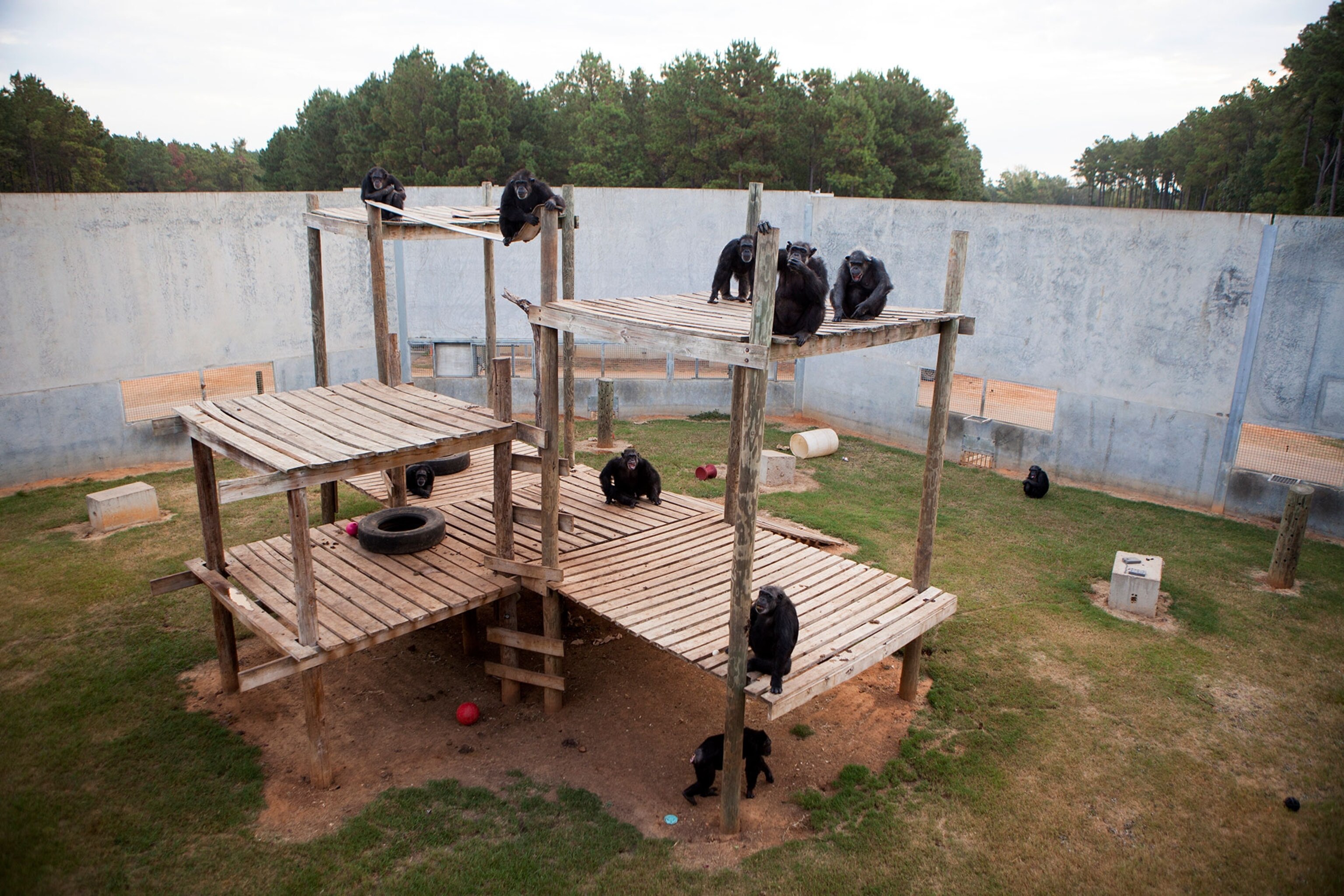
We Asked the Government Why Animal Welfare Records Disappeared. They Sent 1,700 Blacked-Out Pages.
In January, the USDA deleted a public database that included inspection records from zoos, circuses, and research labs. In the agency’s response to our FOIA request, it still refuses to say why.
They exposed abuses at roadside zoos, uncovered controversial government-funded animal experiments, and revealed the mistreatment of circus elephants. They confirmed dog breeders weren't running puppy mills and that horse trainers weren’t exploiting their racers and jumpers. The records in U.S. Department of Agriculture’s online animal welfare database allowed journalists, investigators, and the public to look up inspection reports and violations of animal welfare laws.
But nearly three months ago, the the USDA removed its database of animal abuse records from its public website, with no explanation.
National Geographic wanted to know why. We filed a Freedom of Information Act request in February for records relating to the decision to take the database offline.
In bold disregard for transparency, the department’s response Friday consisted of 1,771 pages of completely blacked-out documents.
“The lack of transparency,” says Kate Dylewsky, program associate at the animal welfare nonprofit Born Free USA, “is as astounding as it is bewildering.”
These redacted records, released by the department’s Office of General Counsel, which provides legal services to the USDA, cover February 23 to March 10—after the database was taken offline. The FOIA officer handling the request said that all 1,771 pages were redacted because they’re related to ongoing lawsuits.
They include one by the Humane Society and one filed on behalf of six organizations, including PETA, Born Free USA, and The Physicians Committee For Responsible Medicine.
Ongoing litigation is a common reason for redactions in FOIA responses, but Doug Haddix, executive director of Investigative Reporters and Editors, says these full-page blackouts seem “excessive. No effort has been made to determine precisely what content in these 1,700 pages may legally be redacted. FOIA requires agencies to disclose materials—even portions of documents—that are not exempt from release under the law. The FOIA law generally prevents agencies from withholding an entire document just because a portion of it is exempt from disclosure."
Delcianna Winders, of Harvard’s Animal Law & Policy Program, agrees.
“While these bases may be legitimate for deleting portions of the records at issue, they absolutely cannot be used to withhold 1,771 entire pages,” Winders said in an email. She is part of the lawsuit against the USDA.

The FOIA officer said she will be releasing the remaining documents in batches on a monthly basis. It’s unclear whether documents will continue to be fully redacted. National Geographic is also waiting on documents from another USDA office on the same topic—why the USDA decided to take down the records. (Read more: What we know about the purge of animal welfare records.)
The department assured the public in February that the records in the database would still be available via a Freedom of Information Act request, a much more time-consuming process than simply looking up a name in a public online database.
National Geographic has also filed FOIA request for the entire animal welfare database. The USDA has not yet released any records in response to that FOIA.
ASSESSING THE DAMAGE?
Three months after the purge, those who work to protect animals from abuse are feeling the impact. John Goodwin, with the Humane Society of the United States’ Stop the Puppy Mill campaign, says that seven states and several municipalities mandate that pet stores cannot do business with breeders without demonstrating that they have clean USDA inspection reports. Goodwin says that many breeders are now skirting this policy—because the reports simply aren’t available—and are “doing business in the dark.”
The takedown has prevented PETA from knowing the status of several crucial animal cruelty cases, including its eyewitness investigation of Primate Products, Inc, a Florida-based primate dealer funded by the U.S. government. Undercover PETA investigators and USDA inspection reports revealed sustained cruelty by workers towards primates at the facility, including violently yanking their tails, hurling them into nets, pushing their anuses into their bodies, and yanking teeth without anesthesia.
The facility provides primates to research labs at several universities, including the University of Maryland and Columbia. Without USDA inspection reports, PETA cannot update PPI’s customers on ongoing inspections or violations at the facility.
A PETA investigation into the unlawful use of a paralytic drug at two roadside zoos revealed that animals were administered the drug, succinylcholine, without pain meds. The drug leaves animals fully conscious but trapped in a state of panic, unable to blink, in extreme respiratory distress. Delcianna Winders says that despite repeated USDA citations, the zoos had not been charged, and any further action on the part of the USDA is now impossible to know.
Kate Dylewsky of Born Free USA says that the past three months have slowed down the organization’s work on multiple fronts. They keep an ongoing registry of abuse incidents at exotic animal exhibitors across the country. Many of these incidents are pulled from USDA records. Without new records, Dylewsky says that the database is simply not up-to-date with recent transgressions. It hampers her ability to build a case for increased protections, especially at the legislative level. She’s currently working to restrict the use of wild animals in circuses, by compiling testimony of which circuses still use wild animals and whether they have violated the Animal Welfare Act. She no longer has access to new or old information.
Winders today filed an appeal to the USDA, arguing that withholding entire documents is in “total contravention of the law.”
The Humane Society’s John Goodwin believes the only beneficiaries to continued secrecy are abusers. “We want [the database] back up, the American Zoological Association wants it back up. The entire research community wants it back up. The only people who don’t are extremists who want to bury the truth.”